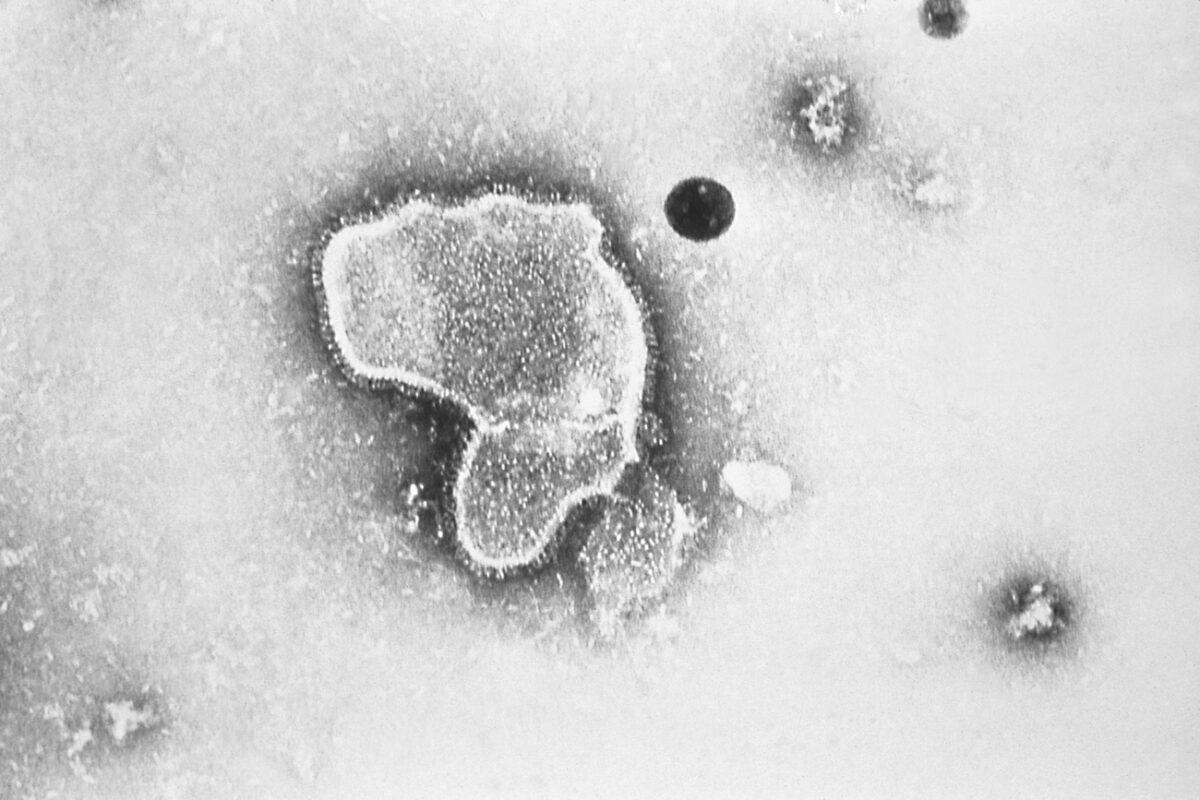


An experimental vaccine targeting respiratory syncytial virus (RSV) was found to be nearly 82 percent effective for infants when administered to pregnant mothers, said data published by Pfizer on Wednesday.
Final data from the study was published in the New England Journal of Medicine. The paper also said that the shot is 86 percent effective in preventing RSV infections in older adults.
A companion report published in the journal said the vaccine is 81.8 percent effective in protecting newborns from hospitalization associated with RSV. An expectant mother would have to receive the shot in her second or third trimester, according the paper.
In the trial, 3,682 maternal participants received vaccine and 3,676 received placebo and that 3,570 and 3,558 newborns, respectively, were evaluated.
“Medically attended severe lower respiratory tract illness occurred within 90 days after birth in 6 infants of women in the vaccine group and 33 infants of women in the placebo group,” it said, noting that “19 cases and 62 cases, respectively, occurred within 180 days after birth.”
“No safety signals were detected in maternal participants or in infants and toddlers up to 24 months of age. The incidences of adverse events reported within 1 month after injection or within 1 month after birth were similar in the vaccine group (13.8% of women and 37.1% of infants) and the placebo group (13.1% and 34.5%, respectively),” it noted.
Pfizer in November released initial trial results on the vaccine that is currently under review by health regulators in both the United States and Europe. The U.S. Food and Drug Administration (FDA) is expected to decide on its use by August.
Sanofi and AstraZeneca are developing a single-dose antibody, nirsevimab, for RSV prevention in infants. That drug is also under FDA review.
According to documents released by the FDA weeks ago, during the clinical trial, there were reports that some were diagnosed with Guillain-Barre syndrome, an autoimmune disorder that affects the nerves.
“Given the temporal association and biological plausibility, FDA agrees with the assessments of the investigators that these events were possibly related to study vaccine … therefore, [Guillain-Barre] is being considered an important potential risk,” the FDA said in documents that were released as its panel of vaccine advisors met about a month ago.
Two cases of Guillain-Barre were confirmed in two adults in their 60s among 20,000 recipients of the Pfizer shot, it was discovered. There were no cases of the disorder among those who didn’t get the RSV shot.
The U.S. Centers for Disease Control and Prevention (CDC) said that some 500,000 children under the age of 5 go to hospital emergency rooms and 57,000 are hospitalized on average each year. Of those figures, the CDC estimates that between 100 and 500 children in that age group die, describing RSV-associated deaths in young children as “uncommon.”
“Among US adults, an estimated 177,000 hospitalizations and 14,000 deaths associated with RSV infections occur annually,” the agency wrote. “However, these are likely underestimates of RSV-associated deaths.”
CDC data suggested that confirmed cases of RSV peaked at 20,000 confirmed cases in one week in mid-November across the United States. There were eight consecutive weeks at the end of 2022 where more than 10,000 cases were confirmed.
Despite the virus emerging across the United States every year, RSV outbreaks drew headlines starting in the fall of 2022 as some doctors warned that spikes in the virus could cause health care systems to become overwhelmed. Similar claims were made when COVID-19 spread across the country starting in early 2020.
A professor of medicine at Johns Hopkins University and longtime critic of COVID-19 vaccines, Dr. Marty Makary, told Fox News late last year that 2022’s rise in RSV cases could be attributed to an “immunity debt” because people’s immune systems could have been suppressed due to COVID-19 vaccines and because of stay-at-home orders and rules that shut down schools, people were “virus-naive” as they were not exposed to “low levels” of viruses.
Reuters contributed to this report.
